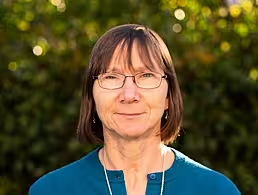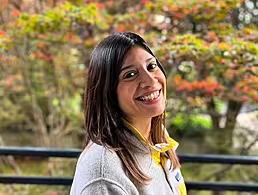Working in pharma can be an attractive proposition, but how can you grow and progress a career in the sector?
Karen Blakely, operations lead at MSD’s facility in Ballydine, Co Tipperary, has travelled that particular career path before. Here, she gives us an idea of her career to date, and offers some tips for those just starting out on the journey.
What first stirred your interest in a career in this area?
I really liked maths and science in school. In secondary school, I got involved in an engineering project with DuPont and also completed some work experience in the area. I learned that engineering was a degree that would open up a lot of opportunities in various industries, such as oil and gas, polymers, pharmaceuticals, food and many more.
At 18 years old, I still didn’t know exactly what I wanted to specialise in, but felt that a chemical engineering degree would leave my options open to a diverse career path.
What steps led you to the role you now have?
During my MEng chemical engineering degree, which I completed in Queen’s University Belfast, I had the opportunity of completing an internship at Pfizer in New York City. This sparked my interest in continuing to work in the pharma industry.
Having subsequently secured a graduate position in MSD Ballydine, I started out as a manufacturing engineer, supporting active pharmaceutical ingredient (API) production across the site. I then moved on to process development and commercialisation, where I was responsible for tech transfers of products from other sites in New Jersey and Singapore.
My next role was in management, where, as technical lead, I had the opportunity to manage a team of chemists and engineers supporting both commercial production and new product introductions.
From there, I have moved into my latest role as operations lead in Ballydine, through which I am directly responsible for the operations on site.
What were the biggest surprises or challenges you encountered on your career path?
A ‘surprise’ for me in my career was realising the existence of gender imbalance at higher levels within many organisations, and how difficult it can sometimes be to progress. Ensuring diversity and gender balance at senior levels of organisations is important, as is support for employees to progress to these higher levels.
For the last few years, I have been the diversity lead in Ballydine. At the facility, we have focused on initiatives to improve gender balance, and I’m delighted at the enthusiasm and support for this across MSD. Some of the things I have learned about during my work on diversity are the importance of networking, sponsorship and mentoring in career progression.
Achieving gender balance in higher levels of organisations will always be a challenge, but seeing companies such as MSD making this a focus is really encouraging. The main thing to know is that it can be done. There are many great female role models who have demonstrated this.
Related to this, another ‘surprise’ for me was the importance of relationship-building. Once upon a time, I believed that hard work, merit and business results would secure career progression within a company. I now know that this is only partly true. Regardless of gender, it’s important for everyone to build the right relationships and network, and to ensure that you have someone at the top who is willing to advocate for you when decisions are being made about career moves or project assignments.
Knowing this, I now try to make a more concerted effort to reach out to and learn from other people, whether by hearing about their own experience or sharing mine.
Was there any one person who was particularly influential as your career developed?
There have been several people I have looked up to and gained advice from during my career so far, including some previous managers and mentors within MSD. However, the most influential people for me have been my family. My husband and two sons are totally supportive of my career goals, and we have a strong work ethic that runs in the family.
What do you enjoy about your job?
I enjoy the constantly changing environment that comes hand-in-hand with a production facility. The experience I have gained over the years has helped me to learn how to manage a large workload and work through change, which are important skills to have in a dynamic workplace or industry.
I also enjoy working with different people across the site and can definitely say I learn something new every day!
What aspects of your personality do you feel make you suited to this job?
I like being busy. I like the buzz of the production environment. I tend to be quite organised, which helps me deal with the workload. I also tend to be quite optimistic, which definitely helps in the days when the feathers hit the fan!
How has MSD supported you on your career path?
Working at MSD has provided me with diverse experience in different areas of API production across the site. In addition, I have had several opportunities to work with colleagues in other sites within the global MSD network, and to complete short assignments overseas.
MSD’s employee development programme drives ongoing discussion with your manager about development and career opportunities. Opportunities outside the core role are a key part of this. For example, working on the site diversity initiative over the last number of years has provided me with the opportunity to develop skills and knowledge in a whole new area.
What advice would you give to those considering a career in this area, or just starting out in one?
Science in general opens up a massive window of career opportunity. It isn’t just limited to physics, biology and chemistry – economics and geography are examples of social sciences that have huge potential for career options too.
Do what you love. It is important not to choose subjects or courses based on salary or status alone. You’ve got to want to come into work in the morning and be motivated to do a great job. If you don’t know what you want to do or where you want to work, talk to people, listen and learn about different experiences.




